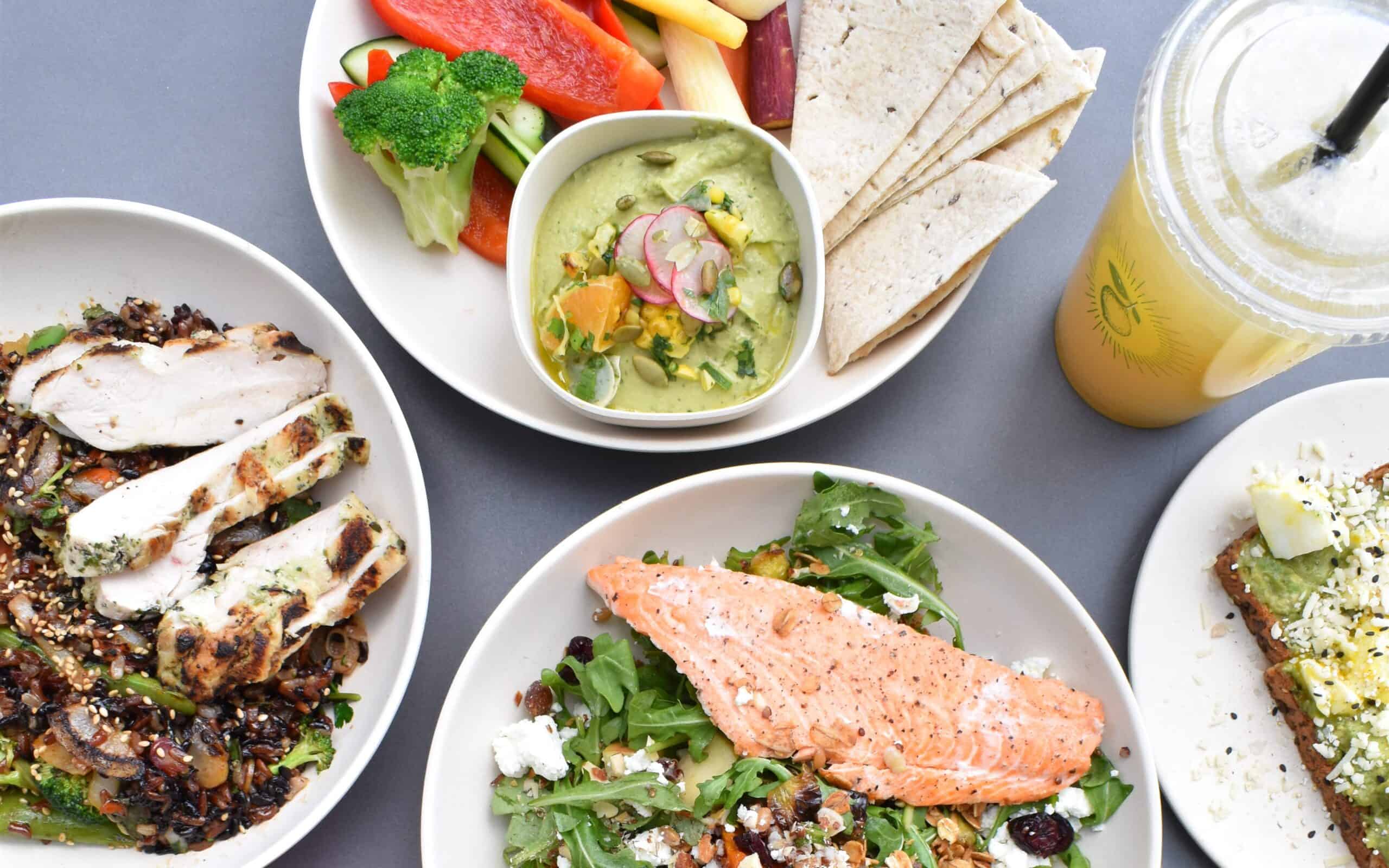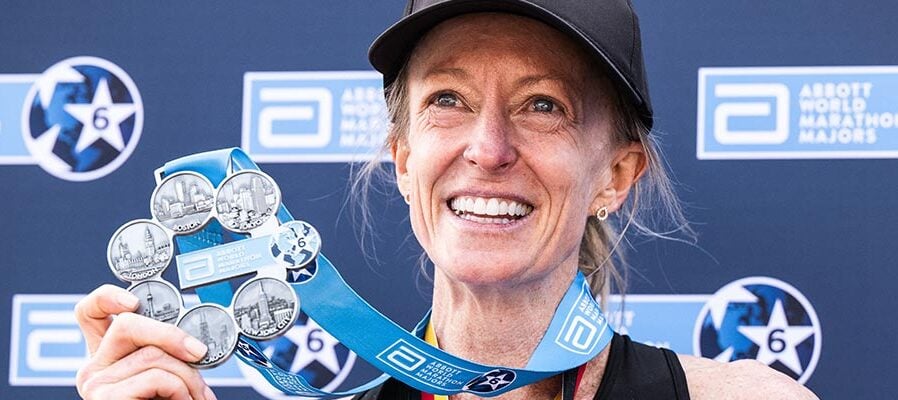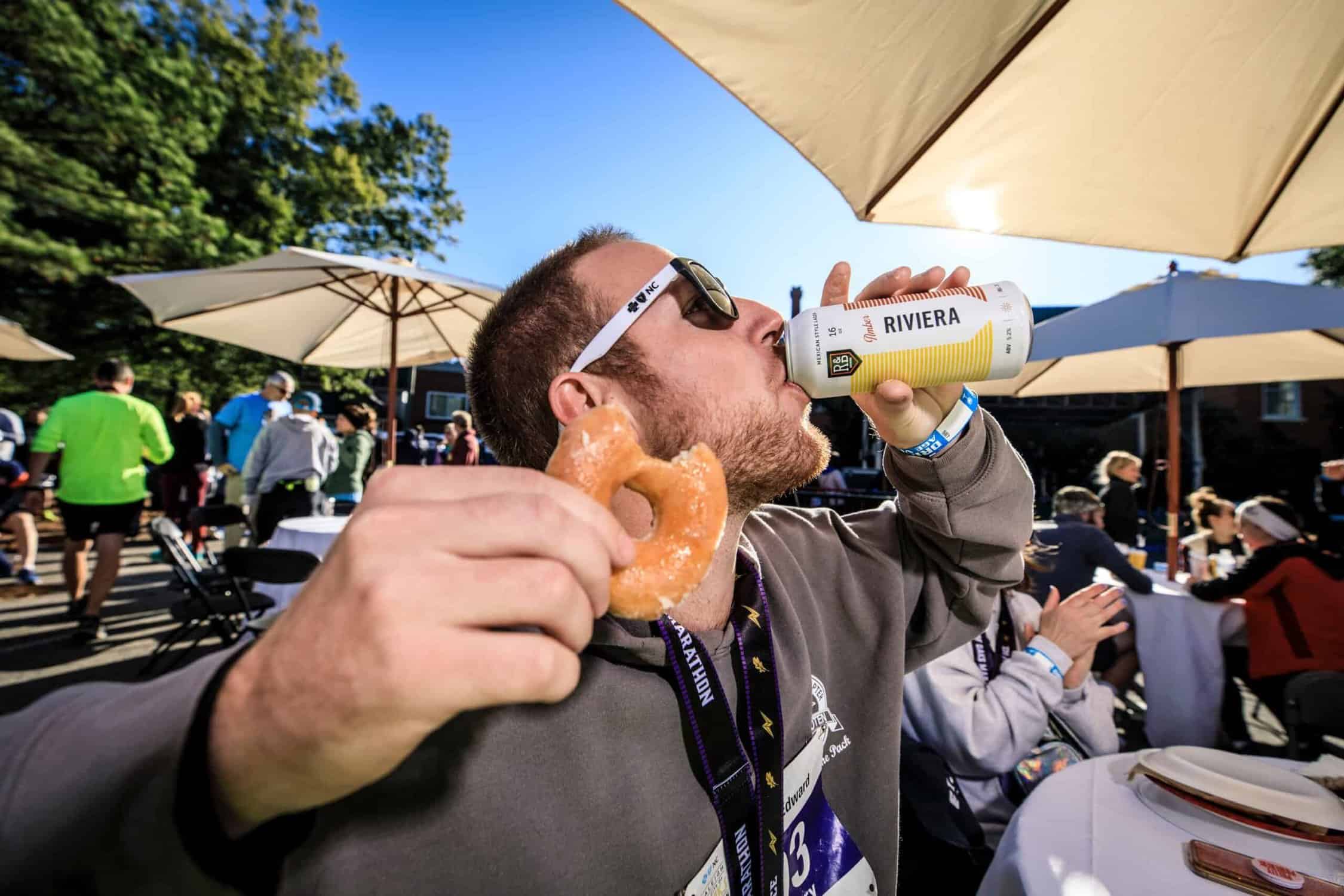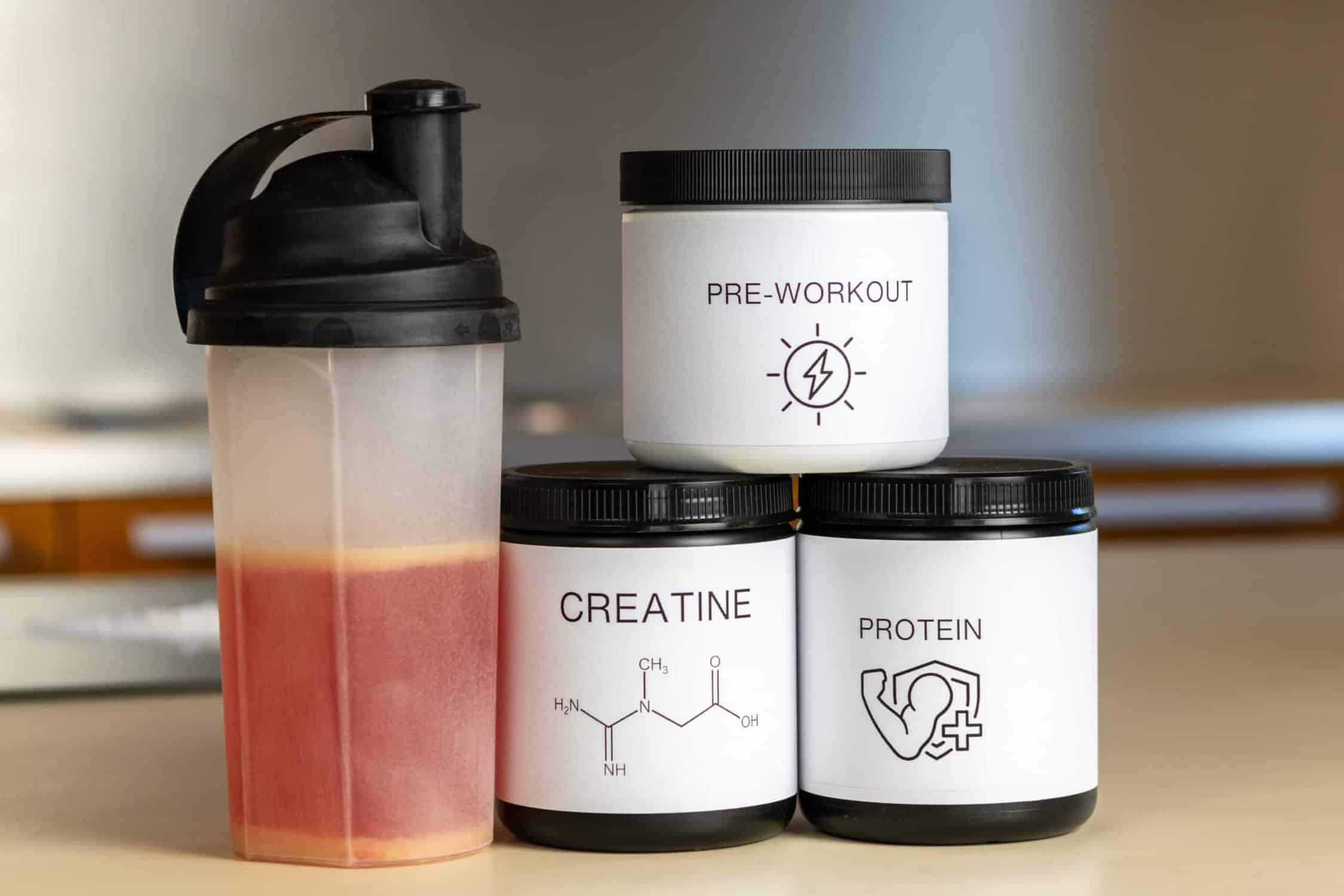You know that food is fuel for your runs, but it’s also what fuels your recovery, repair, and performance progress. Most of us can get by with eating a banana and then heading out for a 3 to 5 miler.B ut when it comes to what to eat before a long run, the answer is a bit trickier.
Any good half marathon training plan will have you tackle a long run once a week. Since this is usually the hardest you’ve pushed yourself yet, your long runs have the greatest impact on your progression toward the goal of running 13.1 miles. Without being strategic about what you eat before a run, you aren’t maximizing your potential—and, therefore, your training gains.
I learned this lesson the hard way. When I ran my first half marathon six years ago, I didn’t pay any attention to my carbohydrate intake, electrolytes, or pre-race fueling—and boy, did I feel that decision. Without enough energy reserves and glycogen stores built up in my muscles, I bonked two hours into the race. I was a cramping disaster.
As I’ve continued to run since, I’ve dialed my nutrition and fueling regiment to accommodate my long runs. I’m now a registered dietitian, so I have a much deeper understanding of exactly how to fuel my and my client’s bodies with the right nutrients for the best performance. As such, I can attest that the goal in dialing your strategy of what to eat before a run is:
- To have enough energy to reach the finish line with minimal struggle
- To minimize the pain of a race
- To minimize any surprise gastrointestinal issues.
Here’s what I recommend to my clients.

What to Eat Before a Long Run
Training runs are the opportunity to find what food works best for you. There are two parts to this:
- What foods give you sustainable energy
- What foods work with your digestive system, considering over 60% of runners experience at least one gastrointestinal issue while moving, according to a 2022 study in the Polish Journal of Sports Medicine
Here’s the foundation of what you should eat:
- Plenty of carbohydrates for energy
- Moderate protein for satiety
- Small amounts of healthy fats to sustain your energy
You want to make things easy for your intestines. You’ll be diverting all your blood to your hard working muscles, after all! Carbs should be your main focus.
Avoid a breakfast that’s too high in fat, protein, and any very high fiber foods. These macronutrients take longer to digest and less efficiently convert to energy.

10 Meals to Eat Before a Long Run
Your long training runs are a chance to practice your pre-run routine for when the day of your half marathon, marathon, or other endurance event arrives.
When you’re training, you’ll have long runs at a distance of 10 to 12 miles for a half marathon or 18 to 22 for a full marathon. These offer a perfect opportunity to experiment with how nutrition impacts your performance, digestive system (i.e. bloating, bowel urgency, etc).
Here are 10 meals to consider and try out:
- Oatmeal: A classic choice for many high-performance athletes, oatmeal provides complex carbohydrates for sustained energy. Top it with fruits (carbohydrates), nuts (healthy fats), and honey (simple carbs for more accessible energy).
- Whole grain toast with nut butter & jam: Whole wheat toast with peanut butter and jam provides a good mix of lots of carbohydrates with some protein and healthy fats.
- Greek yogurt with berries and honey: Greek yogurt is high in protein and the natural sugars from berries and a generous drizzle of honey will deliver your carbohydrates.
- Banana and almond butter, and a sports drink: A great portable option, bananas are rich in carbohydrates and almond butter adds healthy fats and protein. A sports drink is a fantastic addition to help hydrate you while providing you some pre-run electrolytes.
- Smoothie: My favorite smoothies are a blend of fruits, Greek yogurt, a handful of spinach, and a scoop of protein powder. It makes for a convenient and nutrient-packed pre-run meal. Also great for on-the-go athletes!
- Rice with grilled chicken and vegetables: This is a balanced meal with carbs, lean protein, and some fiber and antioxidants from the veggies (like potassium).
- Scrambled egg whites on a bagel: Bagels are one of the best foods to eat before a training session. They are high-carb and, paired with egg whites, offer a protein source so you’re sure to have sustained energy for your run.
- Pasta with tomato sauce: Whole wheat pasta provides carbohydrates while tomato sauce offers vitamins and antioxidants. You can also add lean protein like grilled chicken.
- Baked sweet potato: A baked potato is a good pre-run snack to boost glycogen stores. Avoid topping it with too many high-fat foods like sour cream and bacon bits to maximize its benefits.
- Energy bar: Whole foods are always better, but if a pre-packaged snack is all you can muster, go for it! Granola bars and supplements are convenient options to reach for if needed.
If the above doesn’t do it for you, check out our extensive list of meals for runners.
When to Eat Before a Run
The timing of your pre-run meal is essential. Aim to eat your pre-run meal 1-3 hours before you start exercising to allow for proper digestion.
As far as how much to eat, here’s guidelines I work by:
- If you’re eating 3 hours before your run, have 3 grams of carbs in your pre-run meal per kg of body weight.
- If your meal is 2 hours before the run, have 2 grams of carbs per kg.
- If it’s 1 hour before your run (or less), have 1 gram of carbs per kg.
It’s also important to stay hydrated by drinking water before your run. Also, don’t forget to listen to your body and adjust your pre-run meal choices accordingly.
Do I Have to Eat Before a Morning Run?
Most race starts are early in the morning and many of us get our training runs in before the day begins. At the same time, a lot of people aren’t hungry first thing in the morning. So, I totally get it if you’re not interested in a big pre-race breakfast at 5am. But you should eat a pre-run meal or snack regardless.
Fasted running, or running on an empty stomach is not something I recommend. Here’s why:
- Running on an empty stomach can lead to low energy levels. This makes it challenging to maintain your pace and complete your run without bonking.
- Low blood sugar levels (hypoglycemia) can also happen during fasted running. This may lead to symptoms like dizziness, shakiness, and difficulty concentrating.
- In some cases, running on an empty stomach may lead to muscle catabolism. This is when your body may break down muscle tissue for energy in the absence of readily available carbohydrates.
Overall, getting a pre-workout snack or meal is really important! You don’t have to force yourself to eat a whole meal. Instead:
- Choose easily digestible carbohydrates that won’t sit heavily in your stomach.
- Aim for a minimum of 30g of carbohydrate.
- Opt for things like a banana, a small energy bar, a piece of toast with jam, or a few handfuls of dry cereal or granola at the very least.
Once your body gets used to having fuel before a workout, you can experiment with increasing your intake. That way, you’re not always running on an empty stomach.
FAQs
What Is the Best Thing to Eat Before a Run?
The best things to eat before a run are foods with easily-digestible carbohydrates. Usually, this looks like a banana, a small energy bar, or a piece of toast with jam.
Should I Eat Before a 30-Minute Run?
Ideally, you want to eat 1-3 hours before a run. That way, your body has time to digest your food and turn it into energy for your run. But if you’re short on time, you can eat quick-digesting carbohydrates 30 minutes before you head out.
For a short run, aim for 30 grams of carbs like from a banana or granola bar. For a long run, aim for 1 gram of carbs per kg of body weight. For 155-pound person (70 kg), you’ll want 70g of carbs like from 1.5 bagels or 2 cups of cooked oats.
Is It Better to Run on an Empty Stomach?
If you’re running for 20-30 minutes, you can run fasted. If you’re running for longer than 30 minutes, you should eat at least 30 grams of quick-digesting carbohydrates before your run. This will give you energy during your run.
How Long Before a Run Should You Eat?
You want to eat 1 to 3 hours before a long run. Then, your body has time to break your food down into an energy source.
What Foods Should I Not Eat Before a Long Run?
Avoid foods high in fat, protein and fiber as these nutrients take longer to digest. You want to make things easy for your intestines since you’ll be diverting all your blood to your hard working muscles! Carbs are your main focus.





